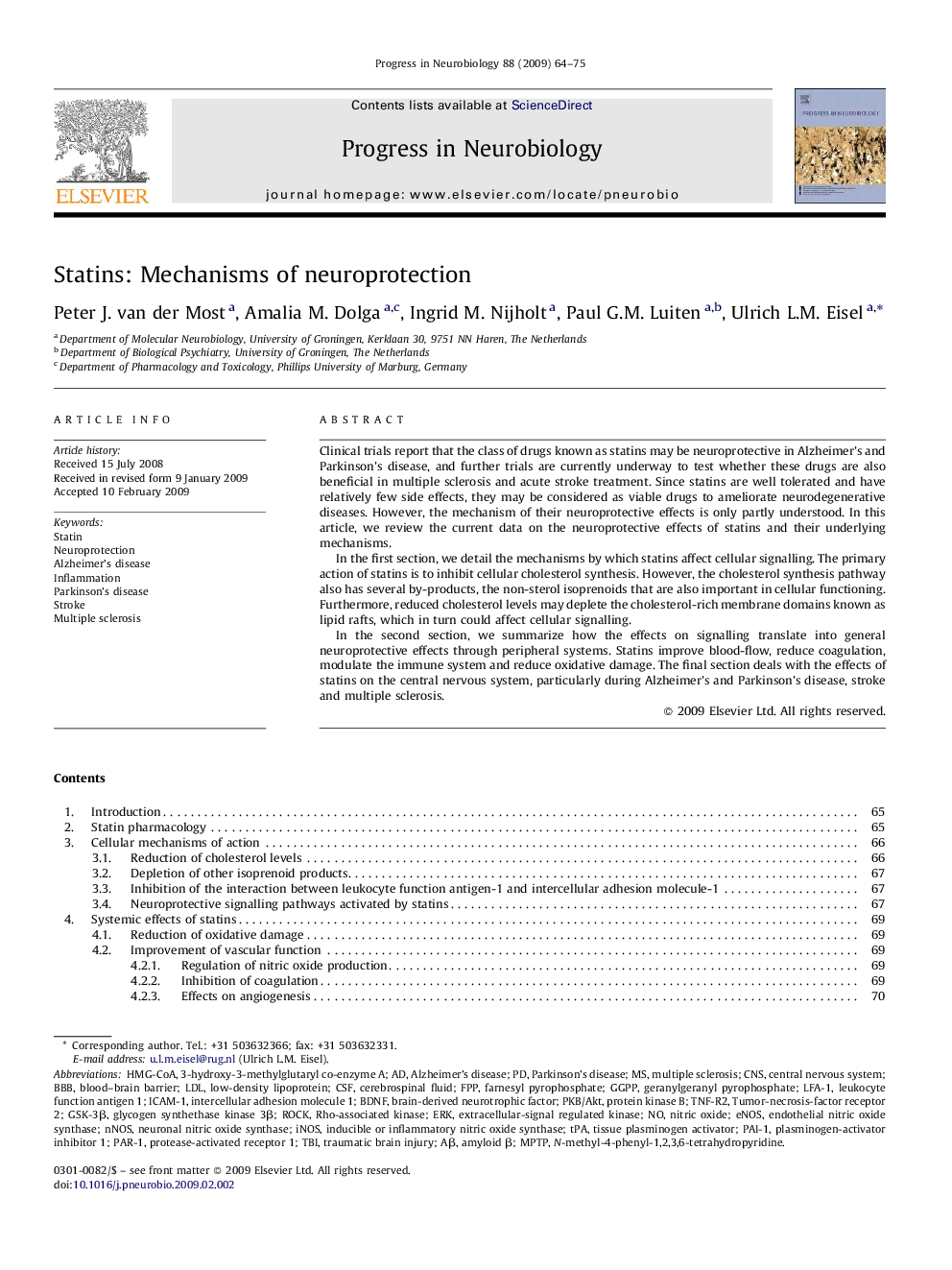| کد مقاله | کد نشریه | سال انتشار | مقاله انگلیسی | نسخه تمام متن |
|---|---|---|---|---|
| 4353746 | 1298496 | 2009 | 12 صفحه PDF | دانلود رایگان |

Clinical trials report that the class of drugs known as statins may be neuroprotective in Alzheimer's and Parkinson's disease, and further trials are currently underway to test whether these drugs are also beneficial in multiple sclerosis and acute stroke treatment. Since statins are well tolerated and have relatively few side effects, they may be considered as viable drugs to ameliorate neurodegenerative diseases. However, the mechanism of their neuroprotective effects is only partly understood. In this article, we review the current data on the neuroprotective effects of statins and their underlying mechanisms.In the first section, we detail the mechanisms by which statins affect cellular signalling. The primary action of statins is to inhibit cellular cholesterol synthesis. However, the cholesterol synthesis pathway also has several by-products, the non-sterol isoprenoids that are also important in cellular functioning. Furthermore, reduced cholesterol levels may deplete the cholesterol-rich membrane domains known as lipid rafts, which in turn could affect cellular signalling.In the second section, we summarize how the effects on signalling translate into general neuroprotective effects through peripheral systems. Statins improve blood-flow, reduce coagulation, modulate the immune system and reduce oxidative damage. The final section deals with the effects of statins on the central nervous system, particularly during Alzheimer's and Parkinson's disease, stroke and multiple sclerosis.
Journal: Progress in Neurobiology - Volume 88, Issue 1, May 2009, Pages 64–75